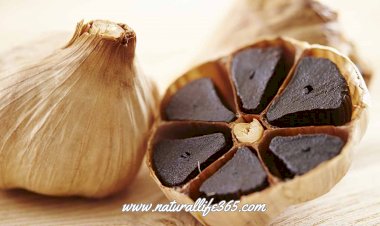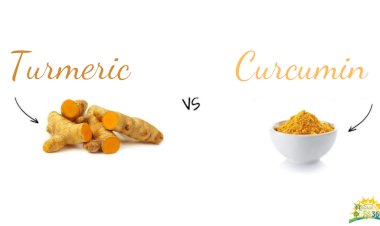Apple Cider Vinegar: Health Benefits and Uses
Uncover the health benefits of apple cider vinegar, including its potential to aid digestion, support weight loss, and improve skin health. Learn how to incorporate it into your daily routine.

Apple cider vinegar (ACV) has gained significant popularity in recent years, celebrated for its numerous health benefits and versatile uses. This tangy, amber-colored liquid, made from fermented apple juice, has a long history of traditional use in cooking, cleaning, and medicine. From aiding digestion to improving skin health, ACV has become a staple in many households.
In this blog, we'll explore the various health benefits and practical applications of apple cider vinegar, shedding light on why it deserves a spot in your daily routine. Whether you're looking to boost your wellness or find natural home remedies, ACV offers many advantages that can enhance your lifestyle.
What is Apple Cider Vinegar?
Apple cider vinegar (ACV) is a type of vinegar made from fermented apple juice. It's known for its pale to medium amber color and strong, tangy flavor derived from acetic acid and other compounds produced during fermentation.
Definition and Composition
At its core, apple cider vinegar is made by fermenting the sugars in apples. The process begins by crushing apples and squeezing out the liquid. Natural yeasts and bacteria are added to the juice to start the alcoholic fermentation process, where the sugars are converted into alcohol. In a second fermentation step, acetic acid bacteria convert the alcohol into acetic acid, giving vinegar its characteristic sharpness and pungency.
ACV is composed primarily of:
- Acetic acid: This is the main active component responsible for many of its health benefits.
- Water: The majority of the liquid.
- Trace amounts of other acids: Including malic acid, which gives it additional health properties.
- Vitamins and minerals: Small amounts of vitamins B and C, as well as potassium.
- Enzymes and probiotics: Particularly in unfiltered, unpasteurized varieties, which contain the “mother” – strands of proteins, enzymes, and beneficial bacteria.
The Fermentation Process
The transformation of apple juice to apple cider vinegar involves two main steps:
1. Alcoholic Fermentation: Yeasts convert the sugars in the apple juice into alcohol. This stage produces apple cider, which contains alcohol.
2. Acetic Acid Fermentation: Acetobacter bacteria convert the alcohol into acetic acid. This second fermentation stage produces apple cider vinegar, characterized by its sour taste and strong smell.
This natural fermentation process results in a liquid that not only has a distinct taste but also boasts several health benefits due to the presence of acetic acid and other bioactive compounds.
You can also read How to Get Enough Protein as a Vegetarian: A Comprehensive Guide
Types of Apple Cider Vinegar
When choosing apple cider vinegar, you’ll encounter several varieties:
1. Organic vs. Non-Organic:
- Organic ACV is made from organically grown apples and is free from synthetic pesticides and fertilizers.
- Non-organic ACV may contain residues of pesticides and other chemicals used during apple cultivation.
2. Filtered vs. Unfiltered:
- Filtered ACV has been filtered to remove the "mother" and any sediments, resulting in a clear, amber liquid.
- Unfiltered ACV contains the "mother," which is a cloudy, cobweb-like substance made up of proteins, enzymes, and beneficial bacteria. This type is often preferred for health uses because it retains more of the natural nutrients and probiotics.
Understanding what apple cider vinegar is, how it's made, and the different types available can help you choose the best option for your health needs and culinary uses.
Health Benefits of Apple Cider Vinegar
Apple cider vinegar (ACV) is not just a kitchen staple; it's also renowned for its potential health-promoting properties. Here are several ways ACV may benefit your health:
1. Digestive Health
ACV is believed to improve digestion by increasing stomach acid production. This can aid in breaking down food more effectively, preventing indigestion and bloating. Additionally, its probiotic content may support a healthy gut flora, promoting overall digestive wellness.
2. Weight Loss and Metabolism
Studies suggest that ACV may contribute to weight loss efforts by promoting a feeling of fullness, leading to reduced calorie intake. It may also help regulate blood sugar levels, which can support weight management and improve insulin sensitivity.
3. Blood Sugar Regulation
ACV has shown promising effects on lowering blood sugar levels after meals, particularly in individuals with insulin resistance or type 2 diabetes. Consuming ACV before meals may help moderate glucose and insulin responses.
4. Heart Health
Some research indicates that ACV could contribute to heart health by lowering cholesterol levels and improving lipid profiles. These effects may reduce the risk of cardiovascular diseases when combined with a healthy diet and lifestyle.
5. Antimicrobial Properties
ACV exhibits antimicrobial properties, potentially inhibiting the growth of harmful bacteria. It has been used historically as a natural preservative and disinfectant, both internally and externally.
6. Skin and Hair Care
When used topically, ACV may help balance the skin's pH, making it beneficial for conditions like acne and eczema. It can also be used as a hair rinse to enhance shine, remove product buildup, and combat dandruff.
Each of these benefits highlights ACV's versatility as a natural health aid. However, it's essential to use ACV responsibly and in moderation, as excessive consumption can lead to adverse effects like tooth enamel erosion or digestive discomfort. Incorporating ACV into your diet and skincare regimen cautiously can harness its potential benefits effectively.
Practical Uses of Apple Cider Vinegar
Beyond its health benefits, apple cider vinegar (ACV) serves a variety of practical purposes in daily life. Here are some creative and effective ways to incorporate ACV into your routine:
1. Culinary Uses
- Salad Dressings: Create a simple vinaigrette by mixing ACV with olive oil, mustard, and herbs.
- Marinades: Tenderize meat or tofu by marinating them in a mixture of ACV, oil, and spices.
- Pickling: Use ACV to pickle vegetables like cucumbers, carrots, or red onions for tangy snacks or toppings.
2. Home Remedies
- Sore Throat Relief: Gargle with diluted ACV to soothe a sore throat and kill bacteria.
- Digestive Aid: Mix a tablespoon of ACV with water and honey to alleviate bloating and improve digestion.
- Natural Deodorant: Dab ACV under your arms to neutralize odor-causing bacteria.
3. Cleaning Agent
- All-Purpose Cleaner: Dilute ACV with water and use it to clean countertops, glass surfaces, and floors.
- Disinfectant: Due to its antimicrobial properties, ACV can be used to disinfect kitchen surfaces and bathroom fixtures effectively.
4. Beauty Treatments
- Facial Toner: Mix equal parts of ACV and water to create a natural facial toner that helps balance skin pH and minimize pores.
- Hair Rinse: After shampooing, rinse hair with a mixture of ACV and water to remove buildup, enhance shine, and restore pH balance.
5. Pet Care
- Flea Repellent: Dilute ACV with water and spray it on your pet's fur to help repel fleas and maintain a healthy coat.
You can also read Ayurvedic Remedies for Common Ailments
How to Use Apple Cider Vinegar Safely
While apple cider vinegar (ACV) offers numerous health benefits and practical uses, it's essential to use it safely to avoid potential side effects. Here are some guidelines for incorporating ACV into your routine responsibly:
1. Dilution
- Internal Use: When consuming ACV orally, always dilute it with water or another liquid (black or green tea). Start with 1–2 tablespoons of ACV in a large glass of water to prevent irritation of the throat and stomach lining.
- Topical Use: For skincare or hair care applications, dilute ACV with water before applying it to your skin or hair. This helps prevent irritation and maintains the skin's natural pH balance.
2. Avoid Undiluted Consumption
Drinking undiluted ACV can erode tooth enamel and cause damage to the throat and digestive tract. Always dilute it to reduce its acidity.
3. Limit Consumption
While ACV can be beneficial in moderation, excessive consumption may lead to potassium depletion, osteoporosis, or digestive issues. Stick to recommended amounts and consult with a healthcare provider if you have concerns about your intake.
4. Use Organic, Unfiltered ACV
Organic, unfiltered ACV with the "mother" contains beneficial enzymes, probiotics, and nutrients. Look for cloudy vinegar with sediment at the bottom, which indicates it hasn't been overly processed.
5. Monitor Reactions
Pay attention to how your body reacts to ACV. Some individuals may experience digestive discomfort, especially if they have sensitive stomachs or conditions like acid reflux. Discontinue use if you experience adverse effects.
6. Consult with a Healthcare Professional
If you have existing health conditions or are taking medications, consult with your healthcare provider before using ACV regularly. It may interact with certain medications or exacerbate specific health issues.
7. Store Properly
Keep ACV tightly sealed and stored in a cool, dark place to maintain its potency and prevent contamination.
As you incorporate ACV into your daily life, remember to do so responsibly by diluting it for consumption, monitoring your body's response, and seeking advice from healthcare professionals when needed. Whether you're looking to support your digestive system, improve your skin's appearance, or explore natural cleaning alternatives, ACV can be a beneficial ally.
Embrace the potential of apple cider vinegar and discover how it can contribute to your overall well-being, making it a staple in your holistic health journey.
References and Further Reading
- PubMed Central: Search results for apple cider vinegar studies
- Journal of Clinical Nutrition
- The Apple Cider Vinegar Cure: Essential Recipes & Remedies to Heal Your Body Inside and Out by Madeline Give
- Healthline: 6 Health Benefits of Apple Cider Vinegar, Backed by Science
- ConsumerLab: Product Reviews of Apple Cider Vinegar Supplements
If you value these free online resources provided by Natural Life 365, please consider supporting my website by sharing the blogs ![]()
DISCLAIMER:
Some of the links in this content may be affiliate links. This means that if you click on one of the links and make a purchase, I may receive a commission (at no extra charge to you). However, I only recommend products that I personally use and have tested myself. Also, understand that I have taken reasonable steps to ensure that the information on this content is accurate, but I cannot represent that the website(s) mentioned in this post are free from errors. Please, check the Affiliate Disclosure at the bottom of this website.








































